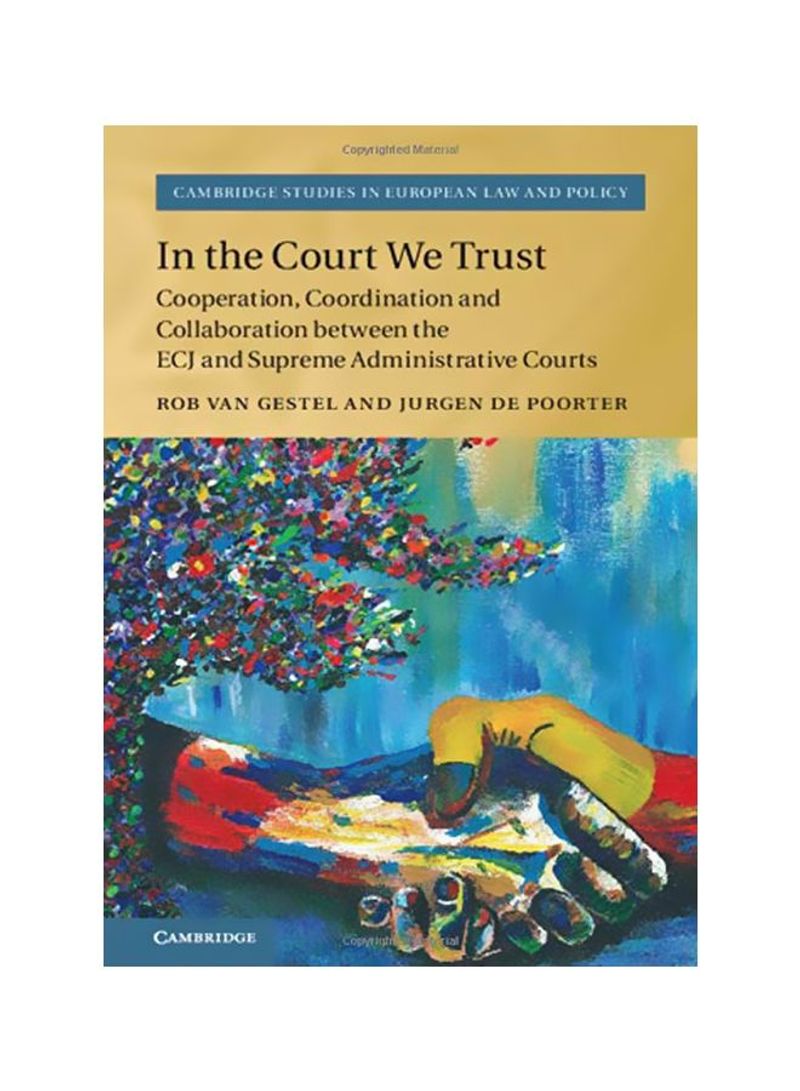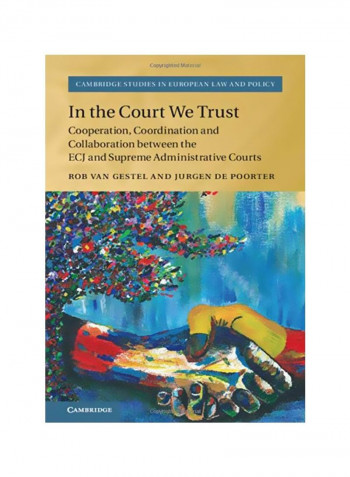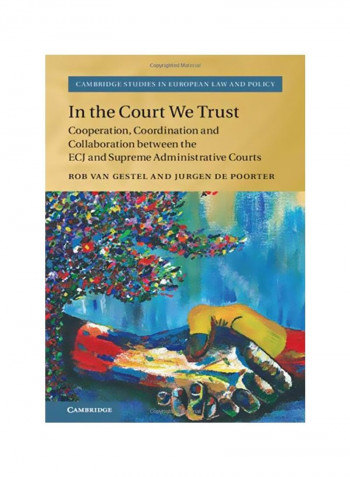In The Court We Trust Hardcover
Recommend
Sort by
Rating
Date
Specifications
Author 1
Rob Van Gestel
Book Description
The preliminary reference procedure has long been envisaged as a judicial dialogue between the European Court of Justice and national courts. However, in reality the relationship appears to be closer to one of growing separation rather than to a happy marriage between equal partners. This book tries to find out: what is behind this? A study of the existing literature, combined with a case law analysis and interviews with judges, has shown that there are a number of important stumble blocks hindering the communication between these courts, such as language barriers, time constraints, and a failing digital infrastructure. However, on a deeper level there also appears to be a lack of mutual trust that prevents Supreme Administrative Courts from using the possibilities the procedure provides, such as the opportunity to offer provisional answers to the Court of Justice and the use of requests for clarification by the latter.
ISBN-13
9781108481274
Language
English
Publisher
Cambridge University Press
Publication Date
31 January 2020
Number of Pages
256
About the Author
Rob van Gestel is Professor of Law at Law School, Universiteit van Tilburg, The Netherlands. He was visiting Professor at the Academy of Legal Theory of the Katholieke Universiteit Leuven, Brussels, Professor of methodology of legal research at Katholieke Universiteit Leuven, and Braudel Fellow of the European University Institute in Florence, Chairman of the Dutch Association of Legislation and member of the International Association of Legislation. He has recently published: Rob van Gestel, Hans Micklitz and Ed Rubin (eds.), Rethinking Legal Scholarship: A Transatlantic Dialogue (Cambridge, 2017), and articles in the European Law Journal, Common Market Law Review, European Public Law, Cambridge International Law Journal, Legal Studies. Jurgen de Poorter is Professor of Administrative Law at Universiteit van Tilburg, The Netherlands and deputy Judge in the District Court of The Hague. From 2005 until 2018 he was a special advisor to the Dutch Council of State, in particular to the Administrative Jurisdiction Division of the Council of State. He has recently published on methods of judicial lawmaking, judicial review of evidence based legislation and judicial dialogues in the European Union.
Author 2
Jurgen De Poorter
Editorial Review
Is there really a 'dialogue' between national and supranational courts? Over the years, many judges and writers have asserted that 'dialogue' takes place, but the evidence provided is very limited, and the analysis of whether the responses of one court to the decisions of another really amount to 'dialogue' has been severely lacking. This book is a major step forward. It provides a serious analysis of what we mean by 'dialogue'. It then analyses how the relationships between the CJEU (Court of Justice of the European Union) and national Supreme (Administrative) Courts fit into this model of interaction. It looks at what happens internally within the various courts as well as at the interactions between them. The carefully nuanced picture of formal and informal processes is a really valuable contribution to how we should think about the relationships between supranational and national courts in general.' John Bell, University of Cambridge 'This is a brilliant book, full of new insights; certainly a must-read for all those interested in the dynamics of the preliminary ruling mechanism.' Arthur Dyevre, Katholieke Universiteit Leuven 'Rob van Gestel and Jurgen de Poorter get to the bottom of the buzzword 'Judicial Dialogue', empirically and theoretically. With verve and enthusiasm, they meticulously analyse the existing and non-existent interaction between national and European courts. They describe the judicial reality of the European Union, which reflects all the open questions about the future direction of European integration. It is so easy to write: this book is a 'must-read'. For once, and now, it is true. In the Court We Trust will immediately become a standard work. It is not only an extremely successful but also a necessary work on the role and function of the Judicial Dialogue, addressed to lawyers, judges, politicians.' Hans-Wolfgang Micklitz, European University Institute, Florence 'Is there really a 'dialogue' between national and supranational courts? Over the years, many judges and writers have asserted that 'dialogue' takes place, but the evidence provided is very limited, and the analysis of whether the responses of one court to the decisions of another really amount to 'dialogue' has been severely lacking. This book is a major step forward. It provides a serious analysis of what we mean by 'dialogue'. It then analyses how the relationships between the CJEU (Court of Justice of the European Union) and national Supreme (Administrative) Courts fit into this model of interaction. It looks at what happens internally within the various courts as well as at the interactions between them. The carefully nuanced picture of formal and informal processes is a really valuable contribution to how we should think about the relationships between supranational and national courts in general.' John Bell, University of Cambridge 'This is a brilliant book, full of new insights; certainly a must-read for all those interested in the dynamics of the preliminary ruling mechanism.' Arthur Dyevre, Katholieke Universiteit Leuven 'Rob van Gestel and Jurgen de Poorter get to the bottom of the buzzword 'Judicial Dialogue', empirically and theoretically. With verve and enthusiasm, they meticulously analyse the existing and non-existent interaction between national and European courts. They describe the judicial reality of the European Union, which reflects all the open questions about the future direction of European integration. It is so easy to write: this book is a 'must-read'. For once, and now, it is true. In the Court We Trust will immediately become a standard work. It is not only an extremely successful but also a necessary work on the role and function of the Judicial Dialogue, addressed to lawyers, judges, politicians.' Hans-Wolfgang Micklitz, European University Institute, Florence



